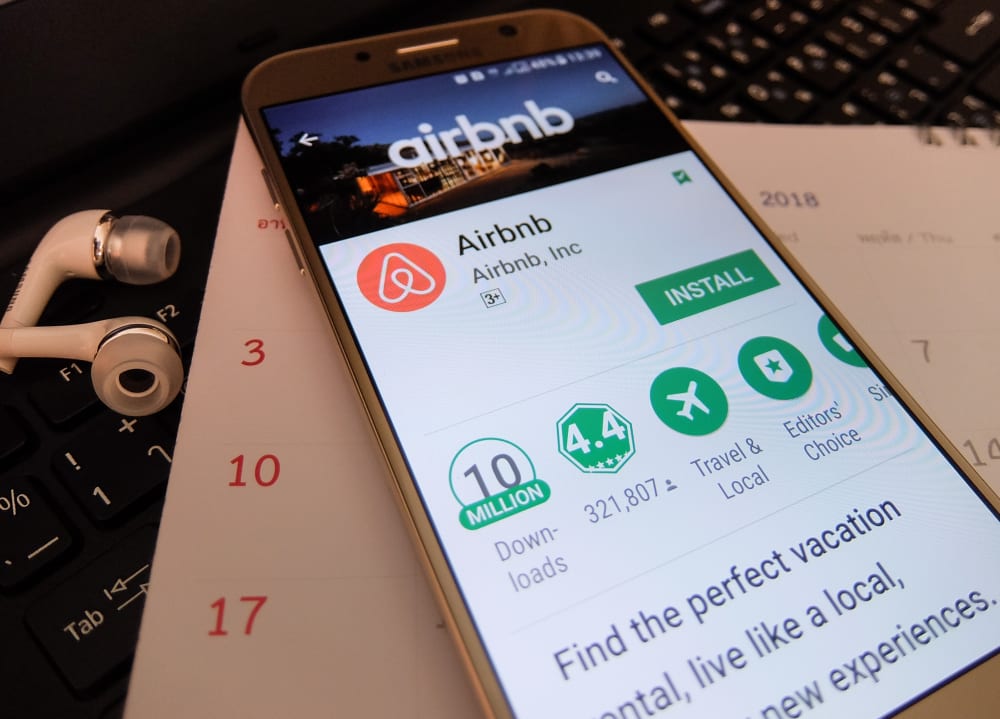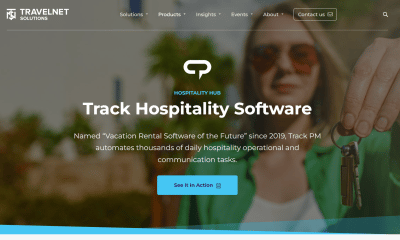
This week, Airbnb announced its acquisition of Luckey Homes, a property management company based in France. The news comes on the heels of Airbnb’s announcement a few weeks ago that it is looking at the home-building business through a new initiative called Backyard. Airbnb’s Backyard plans detail a specific intent to build “fully prefabricated homes.” The combination of announcements is causing both property managers and hosts who list their homes on Airbnb to question the company’s direction and motives.
Update: Airbnb clarified, “Backyard isn’t a home or a house, it’s an initiative from Samara to rethink the home from a systemic perspective. It’s in the prototyping and design phase, and the output or model is not yet confirmed. It is not confirmed if Airbnb will eventually sell homes or to whom they might be sold.”
As Airbnb moves toward an IPO in 2019, acquisitions are expected. However, acquisitions designed to compete directly with its core base of owners and property managers (PMs), whose home listings built the marketplace, are seemingly out-of-character for the company that touts its dedication to its community.
“As an Airbnb host, I think that’s crazy,” said one European Airbnb superhost. “I already feel there’s not much love left [from Airbnb], but once Airbnb starts buying PMs, good luck.”
Update: An Airbnb spokesperson provided the following statement about its acquisition of Luckey Homes:
“Property managers are an important part of our host community, and we’ll continue to invest in partnering with them to help grow their businesses. We’re working to build the right tools for the concierge services and property management ecosystems—to operate seamlessly through Airbnb and to provide the best experience to guests. Bringing in Luckey, and their expertise, as part of the Airbnb team increases our ability to test, learn more quickly, and build capabilities hosts need.”
According to Simon Lehmann, vacation rental industry expert, founder of AJL Consulting, and former president at Phocuswright, “This acquisition raises several questions. Urban PMs that depend on Airbnb-generated demand have to ask [themselves] the question about the future of their partnership. Does this acquisition cannibalize the marketplace, and if so, how? If I were an urban PM solely dependent on Airbnb for bookings, this would give me sleepless nights.”
Skift’s Deanna Ting reported on the acquisition, “Until now, Airbnb has largely acted as more of a platform by which professional property management companies and managers can market and distribute their listings . . . However, buying a concierge services provider/property management company like Luckey Homes suggests that, perhaps, Airbnb is considering a role that extends the company beyond simply being a marketplace, and more of an active provider of private accommodations.”
Turnkey’s John Banczak on Airbnb’s acquisition of Luckey Homes
We reached out to John Banczak, Turnkey Vacation Rentals co-founder and chairman, for his insight into Airbnb’s acquisition.
Are you surprised by this move?
John Banczak (JB): No, there is more money flowing through management companies than distributors like Airbnb or HomeAway. Management makes 2X the take rate of OTAs on 100 percent of the bookings. OTAs make half the take rate, only on the share they generate. To the degree “management” fits a certain mold, it was a matter of time before OTAs jumped in. What’s the mold? No inventory risk, management through technology (vs. armies of headcount), high take rate, scalable costs . . . Asset-light to use the over-used phrase. If it is no “harder” to provide management than just distribute, why not do both?
There are added benefits—by controlling the entire system, no one part is as likely to leave. You can deliver consistent hospitality without hoping someone else does it for you. The big question for your readers is likely what does this mean for small PMs around the world? Is Airbnb going to steal your business out from under you? If other OTAs follow suit, are the days of the small local PM over? I don’t think so. If I was a small PM providing bad service or charging a high commission I’d be nervous, but they should be already. It will always benefit OTAs to have a broad property selection, and local PMs with loyal owners will still get valuable distribution from these sites.
Will this make other PMs less likely to use OTAs to get business?
JB: Everyone wants more traffic to their own website. That won’t change. Dropping a distribution channel because they offer a service? It doesn’t make financial sense on either side. The fastest way for a PM to lose home owners is drop distribution channels. I would not want to be anywhere near Steve Milo right now, but I don’t expect any real fallout or loss of inventory for Airbnb.
OTAs have been providing more “management” style services for years, whether it is consumer awareness and marketing, payment processing, online reservation tools, tax remittance, damage policies, etc. Now they will schedule a housekeeper—why not?
Does it make Turnkey nervous?
JB: Not at all. We’ve built the better mousetrap. We’ve learned a lot and are years ahead with our platform. We’re fine-tuning an engine, not duct-taping wheels onto a prototype.
Does Airbnb understand property management?
Banczak’s point about “building a better mousetrap” is important. Providing consistent quality and management services for owners and guests is a very different undertaking than building a marketplace. Property management is a hands-on, service-based industry, and one in which Airbnb has little experience.
Trust is a Critical Component for a Vacation Rental Marketplace
The world of vacation rental marketplaces has not been a stable one for homeowners and property managers. TripAdvisor purchased market leader FlipKey and subsequently lost focus on technology and service leading to a substantial decline in both revenue and trust from its suppliers, leaving a hole that benefited Airbnb.
VRBO.com, once the go-to source for vacation rental reservations, sold to HomeAway, and then to Expedia. Under the Expedia umbrella, both managers and owners are reporting a substantial drop off of booking activity that even HomeAway’s most avid supporters are now openly discussing. (Tune into 32:00 in this video from the Phocuswright conference.)
What TripAdvisor, HomeAway—and now Airbnb—do not seem to fully grasp is that success in distributing vacation rentals is based on both bookings and trust.
When vacation home owners and managers trust and benefit from a marketplace, they choose to list their homes on the platform. And these listings are the sole reason that travelers use these sites . . . and the reason for the resulting high valuations of these companies. When a marketplace begins to erode that trust, inventory shifts to more trustworthy channels.
Takeaway and Beneficiaries
The overwhelming takeaway for managers and hosts? Do not put your eggs in one basket. Relying on one channel for bookings is both dangerous and irresponsible in a space that is rapidly changing.
The most likely beneficiaries of Airbnb’s move into property management and/or franchising of management services?
- HomeAway: Even though managers and owners are reporting a decline in bookings from HomeAway’s sites, HomeAway can now make a strong argument that at least it is not competing directly with vacation rental managers and owners. HomeAway could enter 2019 with a strong claim as the most trusted, consistent marketplace for vacation homes.
- Google: As Google is expected to launch the first iteration of its vacation rental booking platform in the first quarter of 2019, experts expect to see inventory move swiftly onto the Google marketplace, as managers already invest heavily in Google Adwords products. In addition, it’s price-compare feature will expose the guest fees being charged by other sites. Even though the take rate is expected to be high, Google has a history of transparency that resonates with inventory providers.
- A TBD Disruptor: Eroded trust in TripAdvisor, decreasing trust in an Expedia-owned HomeAway/VRBO, and concerns about Airbnb’s future as a long-term marketing partner are paving the way for a transparent guest-and-supply-friendly marketplace.
Potential Technology Play
It is possible that the acquisition of Luckey Homes is a technology play for Airbnb rather than an entry into property management.
According to Lehmann, “Interestingly, Luckey Homes built a proprietary property management software, which could be valuable to other urban property managers who currently use third-party technology. So maybe the focus [of the acquisition] is on technology and not actually on the property management piece.”
Lehmann added, “Is Airbnb becoming a property management company? I doubt it. It could just be a technology play to bring further value to its partners.”
Update: See comments below.
As HomeAway evangelist, John Suzuki, famously preached: “Judge us not by our words, but our actions.”
As Airbnb moves toward its IPO, the vacation rental industry will be able to more adequately evaluate its intentions through its future acquisitions and new product launches than through its press releases.












The pool of talent specialising in shortlet property management consists of a handful of people so an acquisition is the only way to secure talent.
PropertyKeeper.co.uk developed their own in-house software to manage their client portfolio as whilst off the shelf products exist to stay ahead of the competition requires constant R&D.
Such an interesting move from Airbnb.
Being the CEO of BookingSync.com, the PMS and Channel Manager used by LuckeyHomes, I doubt their main interest to be purely technological, I’m not in the ability to disclose private information about our users obviously, yet we play a very big role technologically speaking in LuckeyHomes’ operations.
To my point of view, this play looks to me more around talent acquisition, strong property management expertise and inventory in key areas and simply diversification.
For property owners and managers, it’s more important than ever to diversify your marketing channels and lower your dependency of any given channel.
Such an interesting move from Airbnb.
Being the CEO of BookingSync.com, the PMS and Channel Manager used by LuckeyHomes, I doubt their main interest to be purely technological, I’m not in the ability to disclose private information about our users obviously, yet we play a very big role technologically speaking in LuckeyHomes’ operations.
To my point of view, this play looks to me more around talent acquisition, strong property management expertise and inventory in key areas and simply diversification.
For property owners and managers, it’s more important than ever to diversify your marketing channels and lower your dependency of any given channel.
One of the big news of the year! Lets not forget Airbnb is predominantly urban as a brand. Luxuryretreats aside its their core still.
Luckey gives a complete business operation and perspective ground up and intelligence. Maybe its simple evaluation of a bigger opportunity or even a defensive but aggressive action.
No one has mentioned booking.com which appears to be very focussed on growing this sector and is competing strongly even adopting a softer supply chain approach like Airbnb in the early days.
Maybe we are seeing the final plays to be No 1 OTA especially as more and more managers increase distribution and massage prices. Controlling source and guest facing can damage other OTAs.
This may just push other managers to focus on different booking channels and end up being a negative move however.
You can bet VC funded urban managers are either sharpening their pencils or getting concerned however.